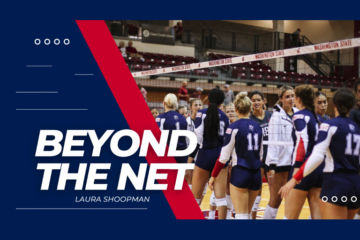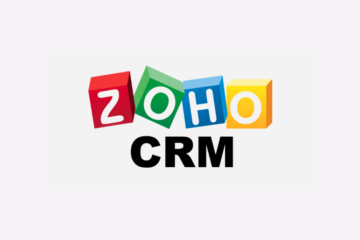
When it comes time for students to pick their practicum topic for the semester, I have found it is important to help them consider a few different ideas before selecting. First, this project is so much better for students if they complete it on their own, rather than in groups. This way they learn the whole process, rather than just parts of inbound marketing. I have had tremendous feedback on the individualization of this project. Also, because they have so many other group projects in every other class, they are just tired of working with lazy group members. But most importantly, they have their own functional asset at the end of the course. Yes, they EACH leave with a fully functional online asset, complete with website, SEO keywording, social media channels, an email campaign, a functional CRM database, and a sweet LinkedIn certification with evidentiary portfolio available to future employers. What is so cool about this project is our website retention rate, that is, 90% of students are keeping their websites active through the first year and 50% through three years post-completion of the course. These numbers and qualitative feedback indicate they are proud of what they are creating and are using this asset to demonstrate their learned skills to land internships and jobs after the course.
In this first week of class however, students realize they do not have a product or service to actually sell in this class, which is why I get them thinking about a content area the first week of class. Since all of them will be building their own website, developing their own content, and sharing this content through social media and email marketing channels, they must quickly become thought leaders in their chosen topic. I suggest that they start working through ideas for which they already most familiar. I ask them questions like “what do your friends ask you advice about?” or “what are you truly passionate about?” I also suggest that this would be a good opportunity to start the pre-launch of a business idea they may want to monetize in the future. Since they are going to be creating and curating content for eight weeks of the semester, they better know the topic thoroughly, or they will be spending as much time learning content as they will be writing content. If they choose something they are already passionate about, then the content creation and curation process will be much less time consuming and much more enjoyable.
Next, in the second week of class, when considering topical selection, students are also advised during class to consider whether or not they may want to keep this website going after the course has concluded and whether or not they may want to monetize the site someday. Note: Monetization is not required nor covered in this course; however, there are additional member only benefits that are provided to student subscribers after the course is completed. Monetization topics are part of those value added benefits for them upon conclusion of the course. Therefore, given these two new considerations, we ask students in a post-purchase survey of their online assets whether or not these considerations had an impact on their topic selection.
As you can see from the featured image, topical selection foci fall into one of four categories based on their perceived time of ownership (short vs. long term) and monetization plans (no monetization vs. monetization). Here, perceived time of ownership is operationalized as the student’s current expectation of whether or not they will keep their website after the course has completed. This does not mean that they will or will not actually keep it. This is merely a perceptual measure at this current moment whether or not they think they will keep it. A short term expectation is that this website will probably only be used for this semester while long term expectations demonstrate their current desire to keep this site going after the semester has completed. Next, monetization measures their desire to eventually make money off of the site through any potential monetization operation on the site. This could include affinity marketing, drop shipping, or even in the future selling products or services through the website. Over the years, we have found that these considerations lead students to generally consider topic selection as a decision resembling a short-term competition based approach with the potential of exploring monetization verses a more long-term entrepreneurial based approach that likely could lead to a product or service business someday.
The competition based approach tends to be more reflective of a student who wants a good grade. These type A students know that there is a competition component to the class through the audit of weekly InGen analytics. Therefore, they choose popular trendy topics that appeal to large audiences and drive engagement. If they consider any monetization then topical selection focuses on passive income approaches like affinity marketing and drop shipping. Students who try out monetization will try to match high selling products at Amazon with their content to promote affiliate paying links through their content. Click here to learn more about Amazon Associates: Amazon’s Affiliate Marketing Program. However, students who take a long term approach and expect to keep their website going, tend to have more of an entrepreneurial mindset. These students, whether they want to promote social good and sustainability will focus on reviewing or even setting up socially responsible organizations to promote sustainability and socially motivated efforts. They typically promote corporate social responsibility and keep these organization going long after the semester has ended. The more profit-oriented mindset of this group of students typically already has a product or service in mind and has wanted to start a business for a long time. These students use this project as a pre-launch to their product or service idea, unless they already have it developed. I have had a few students launch very successful businesses out of this course.
As for this semester’s topical selection foci, you can see that 35% of our Digital Engine students took a short-term semester only approach with 10% not expecting to monetize and 25% expecting to try out some passive income strategies. Conversely, 65% of our students expect to keep their websites after the semester. Twenty percent (20%) do not expect to monetize verses 45% that do expect to monetize in the near future. Once again, these measures are pre-practicum results and will most likely change after experiencing the course. We have found that many who do not expect to keep their website long term change their mind, either because they do not want to lose the momentum they have built in their domain, or because they see opportunity for future success within their field. We do have a few that flip the other direction and realize that this amount or style of work is not suited for their desired work expectation for the immediate future. Many absolutely love this course, but realistically, there are some who confidently do not. Most of the time they respect and give the course high evaluations even, but just realize that inbound marketing is not for them in the long term. And you know, that is ok!
At the end of the semester, we will also report back percentages on actual post-course student decisions about ownership and monetization. We will demonstrate pre- and post-course expectations and discuss any potential movements across these categories. Stay tuned over the next few weeks as we demonstrate how our students spend the first six weeks of their semester setting up their WordPress website and branded online assets. Next, we will highlight how they deploy those assets over an 8 week LIVE practicum to learn unique and productive content marketing strategies. Feel free to review our student testimonials that outline the skill sets they learn and to discover the pathways to internships and jobs they have established. To set up a Zoom meeting to explore our curriculum further, fill out a contact us form and let us know. You can also demo our inbound marketing curriculum to see all of the course modules that we teach in our digital marketing curriculum. We look forward to your thoughts, comments, and inquiries over the summer in preparation for your fall and spring courses.




0 Comments